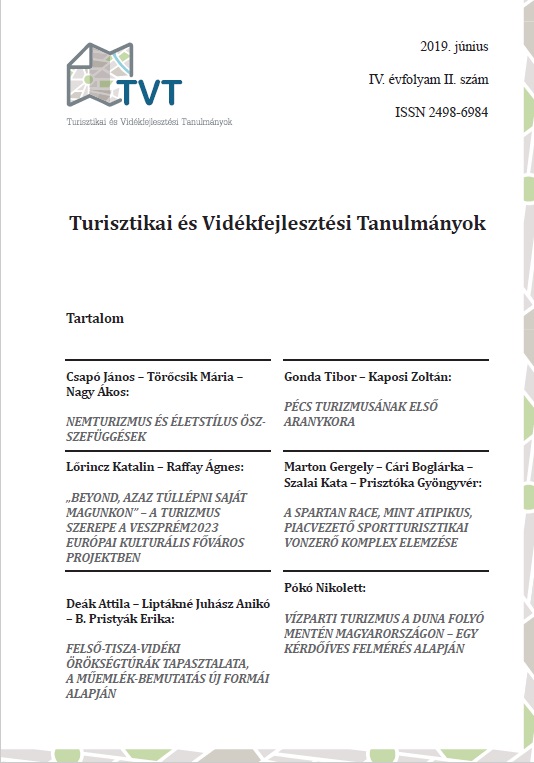Pécs turizmusának első aranykora
Keywords:
Pécs, tourism, cheap railways, accommodations, guest catering, MecsekAbstract
In the second half of the 19th century Pécs was one of the most dynamically developing cities
of Hungary. This process persisted until the 1st World War. The losses of the world war
and the following 3 years of Serbian occupation caused huge damages in the economy and
society of the city. The paper, bringing forward the antecedents of the economic history and
the economic environment, reviews the first golden age of the tourism of Pécs. The tourism
of Pécs experienced an extraordinary development in the 1930s. The cities of the country,
getting over the trauma of the 1st World War and the Great Economic Crisis, realised the
economic opportunities of tourism and their majority started a conscious development of this
branch of economy. Its importance was also realised by the management of Pécs and among
the firsts in the country, on the 28th March, 1933 the municipality committee adjudicated to
establish the tourism committee and the tourism bureau. An enthusiastic welcome “propaganda”
has been launched and a conscious product development work has been realised primarily
concentrating on – in today’s terms – cultural and ecotourism. The tourism supply was
based on the heritage values of the city and on the natural beauties of the Mecsek Mountains.
The hosting conditions, such as the accommodations and guest catering places, were established
with the adequate quality. Such transport connections were realised – which can make
us envious even today – as the direct flight connections with Budapest and Kaposvár or the
train connections with Vienna. Budapest could be accessed within 3 hours by train and due to
the cheap railways domestic tourism became multitudinous and its greatest beneficiary was
Pécs. The city development decisions payed regard to the needs of tourism and there was also
an intention to utilise the local products in tourism which is even fashionable today. Presently
the market of local products has its renaissance. The results of the 1930s have their impacts
on the tourism of the present day Pécs as well.


